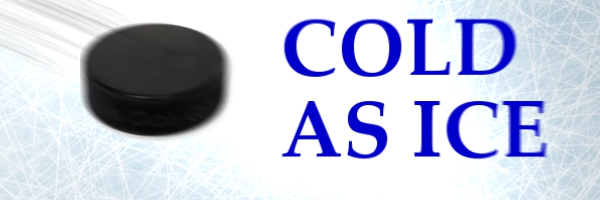Well, my Pens lost today. Mostly through a third period meltdown that saw them racking up the penalties and impotently trying to survive shorthanded again and again. It was a frustrating way to lose, and in all honesty, I’m a little bit bummed out now, even though I have zero personal stake in the game. It’s a question that comes up inevitably for all of us sports fans, when our team chokes and we spin into a brief, morose sadness: “Why do you waste your time with sports if it makes you so sad?”
I know my fiancee has asked me it before. I’ve had friends ask the same. In college, my roommates would love to watch me watch hockey just to laugh at my intensity and how visibly stressed I was. Any real sports fan knows what I’m talking about. Sports fandom becomes so much a part of us that we can trace our ups and downs with the daily scores.
So why do we do it? Why risk being depressed over something as “trivial” as sports? I’m no psychologist, but as an amateur pundit, allow me to wax philosophical for a moment.
1) Because highs and lows are better than plateaus.
Sure, it’s silly to be depressed when a bunch of well-paid athletes you’ve never met don’t play as well as another bunch of well-paid athletes you’ve also never met. But it’s not always lows (unless you’re a Leafs fan… kidding, Jay!). Few moments of euphoria are as grand as when the team you’ve invested your heart and soul into succeeds. I will never forget when Fleury made the heart pounding save in the final seconds of Game 7 on the Cup finals to bring home the championship for Pittsburgh. It was as if time stood still. The aftermath is a blur of joy, of me running around my apartment screaming, toasting a bottle of cheap champagne, and texting all my other Penguin fan friends to celebrate. We did it! We won!
It’s like the old saying, “Nothing ventured, nothing gained.” We invest ourselves in the hope that, just once, we can taste that high of ultimate victory.
2) Because it gives us community in a crazy, isolated world
We’re social creatures. It’s in our blood. Even lone wolfs have some genetic coding that craves the company of like-minded people. Especially in big cities, it can be hard to find community. Sure, there are social clubs, churches, charities, and what have you. But there’s nothing quite like seeing a fellow fan, especially far from home, to build an instant connection. It’s like a shared language and culture, with universal touchstones. You can think fondly on that one star player, on the year everything came together and the Cup was yours, or what the idiot management is doing that’s destroying your chances. In a world where digital communication seeks to isolate us further and further, sports can be a tying thread.
3) Because we crave narratives
In the same vain, sports give us a cultural narrative, almost akin to the myths of ancient cultures. The players are characters we all know and love (or hate in some cases). Sports lend themselves to epic tales, to us vs. them battles, to last second heroics, and overcoming immense odds. We’re hardwired to crave stories: they give us something to cheer about and tap into our deepest emotions. In that regard, sports are our national epic. Are they ultimately trivial? Maybe. Do we love them anyways? Of course! Are they going away any time soon? No way!
So as I sit here, moping over a game the Pens should have won and ask myself why I put up with it all, that’s why. The lows may be low, but hope springs eternal, and even if it takes decades, I’m not giving up my chance to taste the sweet nectar of Lord Stanley’s Cup one more time.

